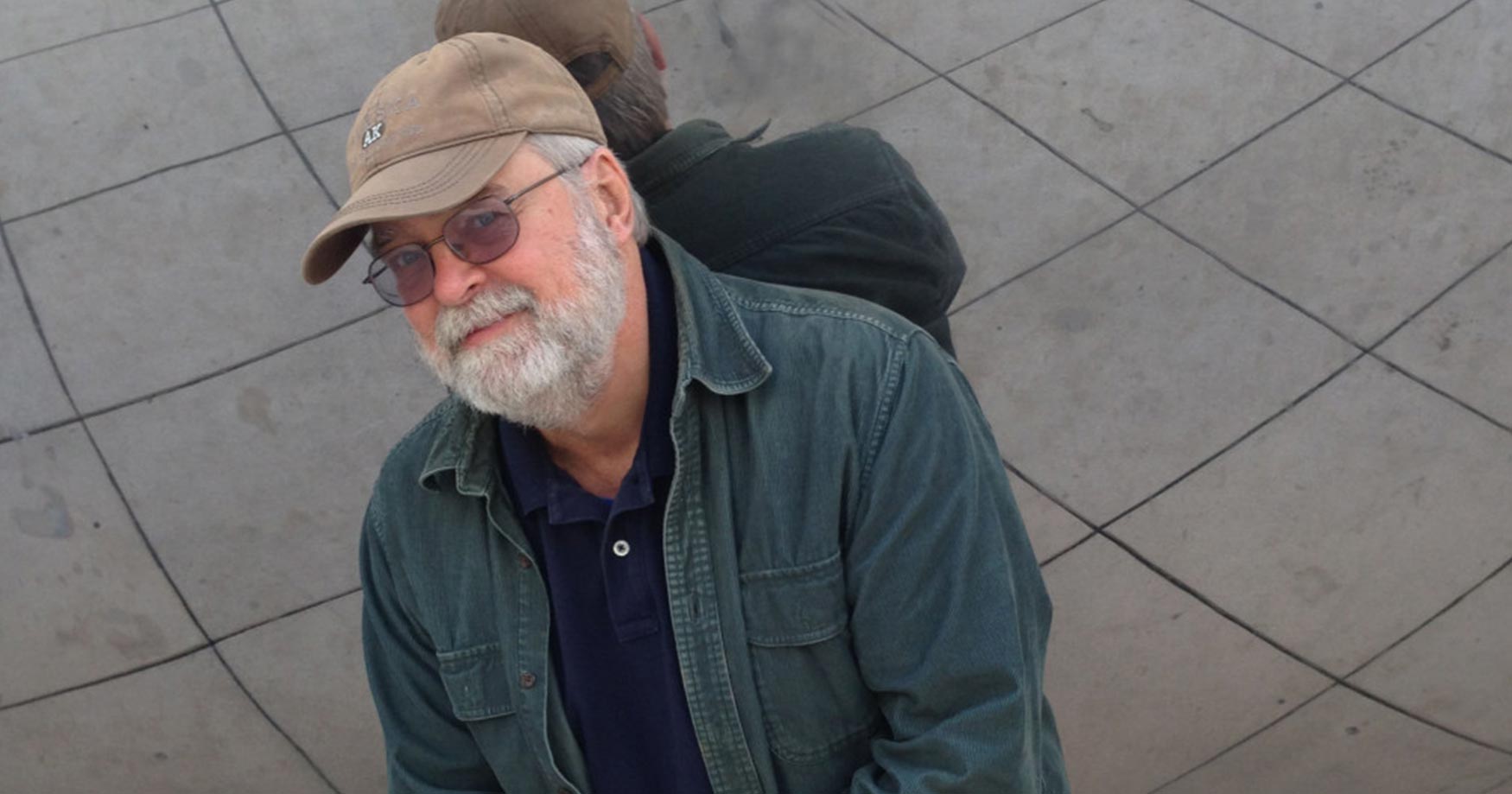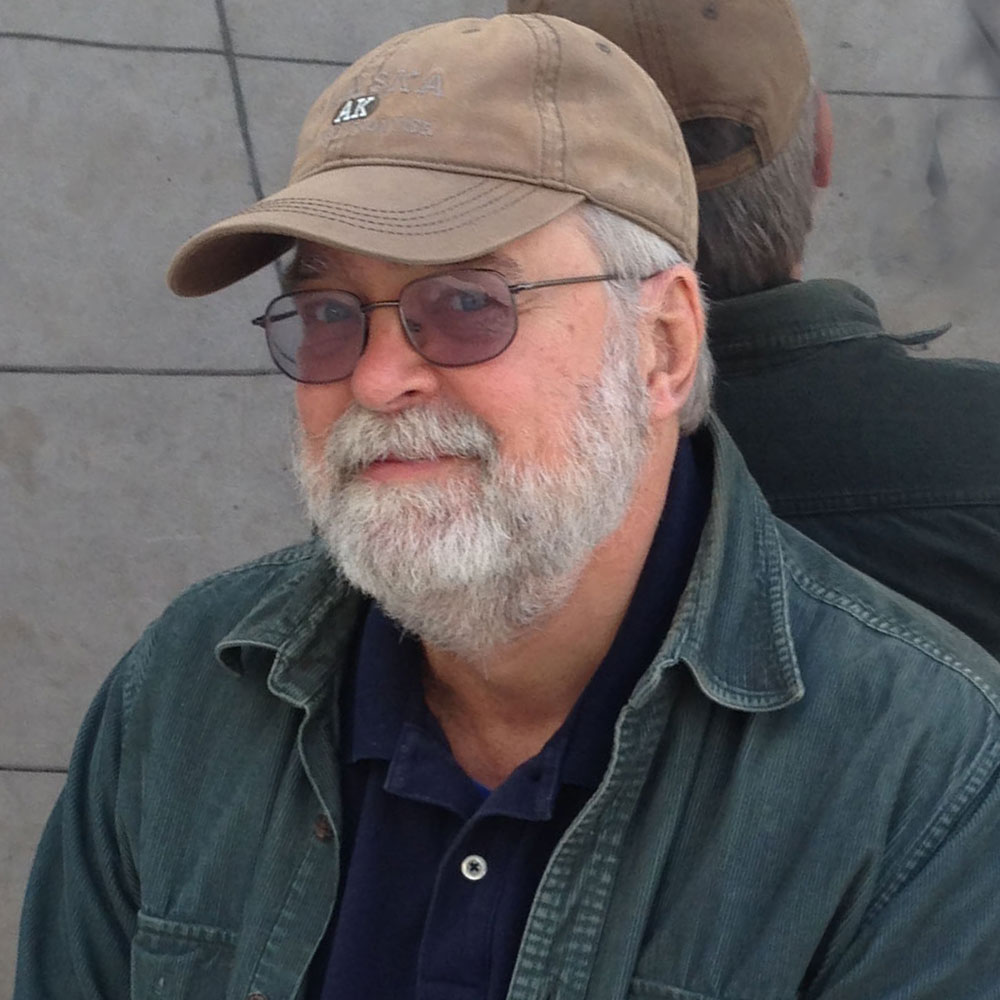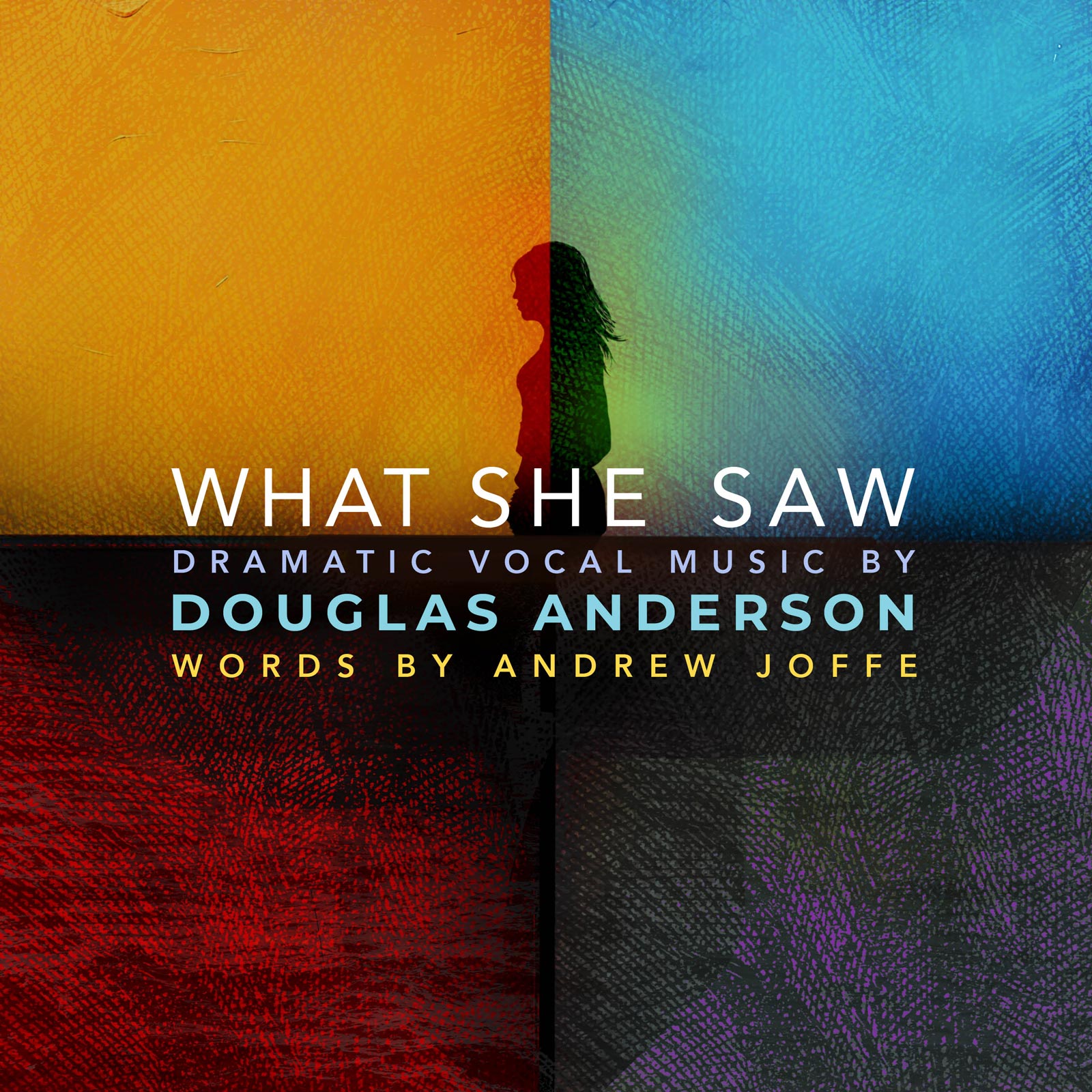
WHAT SHE SAW features two epic, large-scale works from composer Douglas Anderson. These gripping vocal works focus on the lives of two archetypal women: Cassandra of ancient Greece and The Woman of modern times. The first work, Cassandra Songs, tells the story of a Trojan priestess gifted with the power of prophecy but cursed to never be believed. The 11 songs that comprise this first work depict the arc of her tragic struggle. THROUGH/IN, the second major work on the album, is a one-woman chamber opera in which the modern Woman confronts herself through the looking glass. With words by Andrew Joffe, WHAT SHE SAW is a dramatic tour-de-force.
Today, Douglas is our featured artist in “The Inside Story,” a blog series exploring the inner workings and personalities of our composers and performers. Read on to learn how he deeply experiences a piece of music purely from reading its score and how he writes his own works from an emotional standpoint…
Tell us about your first performance.
I remember my first performance at the age of 5 or 6, on piano. I played, in a recital with my older (by 18 months) brother, a four-hands arrangement of Country Gardens by Percy Grainger. I recall I was quite annoyed that I had to play the bass clef part and didn’t get to play the melody. However (possibly related), in the decades since as a composer and conductor, I’ve been attracted to the bass lines of pieces, and tend to sing those when I hear something interesting.
If you weren’t a musician, what would you be doing?
When I was very young I thought I would be a lawyer, possibly because someone suggested that since I liked to argue every point it would be a good profession for me. But when I began to play professionally (Jazz, at the age of 12), and realized one could make a living doing that, I had to be a musician. However, in college my advanced training allowed me to finish the music major in two years, and I needed to fill my schedule with something, so I also majored in psychology, which I still pursue actively. After all, as musicians our business is to put organized sound in peoples’ ears, to affect their minds; so I am very interested in everything that helps me understand the human brain.
Take us on a walk through your musical library. What record gets the most plays? Are there any “deep cuts” that you particularly enjoy?
As a general rule, these days I rarely listen to recordings. When I read this question, I immediately thought of my rather large library of scores. Among those that I snatch off the shelf for inspiration or entertainment most consistently are J.S. Bach and Anton Webern (as well as all the other greats); leafing through the scores allows me to experience the music much more quickly and intensely. I’ve been blessed to be able to conduct many operas (over 100), almost 100 world premieres, and most of the standard orchestral and choral repertoire, as well as plenty of oddball new and old music; so I can snatch a score off the shelf and experience a piece quite vividly by turning the pages.
What emotions do you hope listeners will experience after hearing your work?
When I compose I always have an idea of what I want the audience to experience from the piece. The emotions I hope to evoke in the listener are as varied as can be. I often use titles to “set up” the listener in a certain way, for the music/emotional experience to come. I recently finished a Symphony for orchestra, which I subtitled “Four Moods for Orchestra” [Confusion, Depression, A Glimmer of Hope, and Elation], in which the purpose is to convey the moods as intensely as possible, pulling the audience through the sequence into an exhilarating finish.
What were your first musical experiences?
I began piano lessons at the age of 5. I grew up in a family that played music together. Both of my grandmothers were professional pianists, and every time one or the other visited someone (usually more than one person) played the piano. As I grew up I listened to every record my parents owned, and began to try to transcribe what I heard. As a teenage jazz musician (playing a lot in big bands) I began to collect a lot of records that appealed to me: Miles, Coltrane, Monk, Don Ellis, Jones/Lewis band, and of course Ellington and Basie and such. As an adolescent I also discovered a treasure trove of diverse classical piano music in a book that one of my grandmothers left behind, and so discovered works by J.S. Bach, Mozart, Haydn, Mendelssohn, Beethoven, Schumann, and many others long before I heard them live or on recordings.
What are your other passions besides music?
In my search to understand humans (see psychology above), I still read a lot of psychology and history. Languages are another passion of mine. In graduate school I was required to pass reading tests in French and German (I had studied Spanish for years prior) to get my Master’s degree, so I bought a little book for each (Learn French in 30 Days! and similarly for German), bought a translating dictionary of each, and started reading literature in the original — Moliere, Goethe, Schiller, various histories, etc. I passed the tests, but more importantly I discovered that I loved learning languages because of the window it opened to the different cultures. I’m still at it, getting help from the diverse population in NYC — colleagues have helped me with Russian and Mandarin, and I just learned to greet my new coffee guys in Farsi and Bengali.
And as I tell my students, when I grow up I want to start an Institute for the Study of the Effect of Music on Humans, and run experiments (I have a starter list of about 100 already) to understand how music works on the human brain.

Douglas Anderson is a composer, conductor, educator, and producer who has been active in the New York area for 50 years. He studied music and psychology at Columbia University, where his three degrees culminated in a doctorate in music composition in 1980. His professional career began as a jazz musician at the age of 12, and he performed widely in the Eastern United States before moving to New York to attend college. His work as a conductor has been his performance focus for the last several decades.

